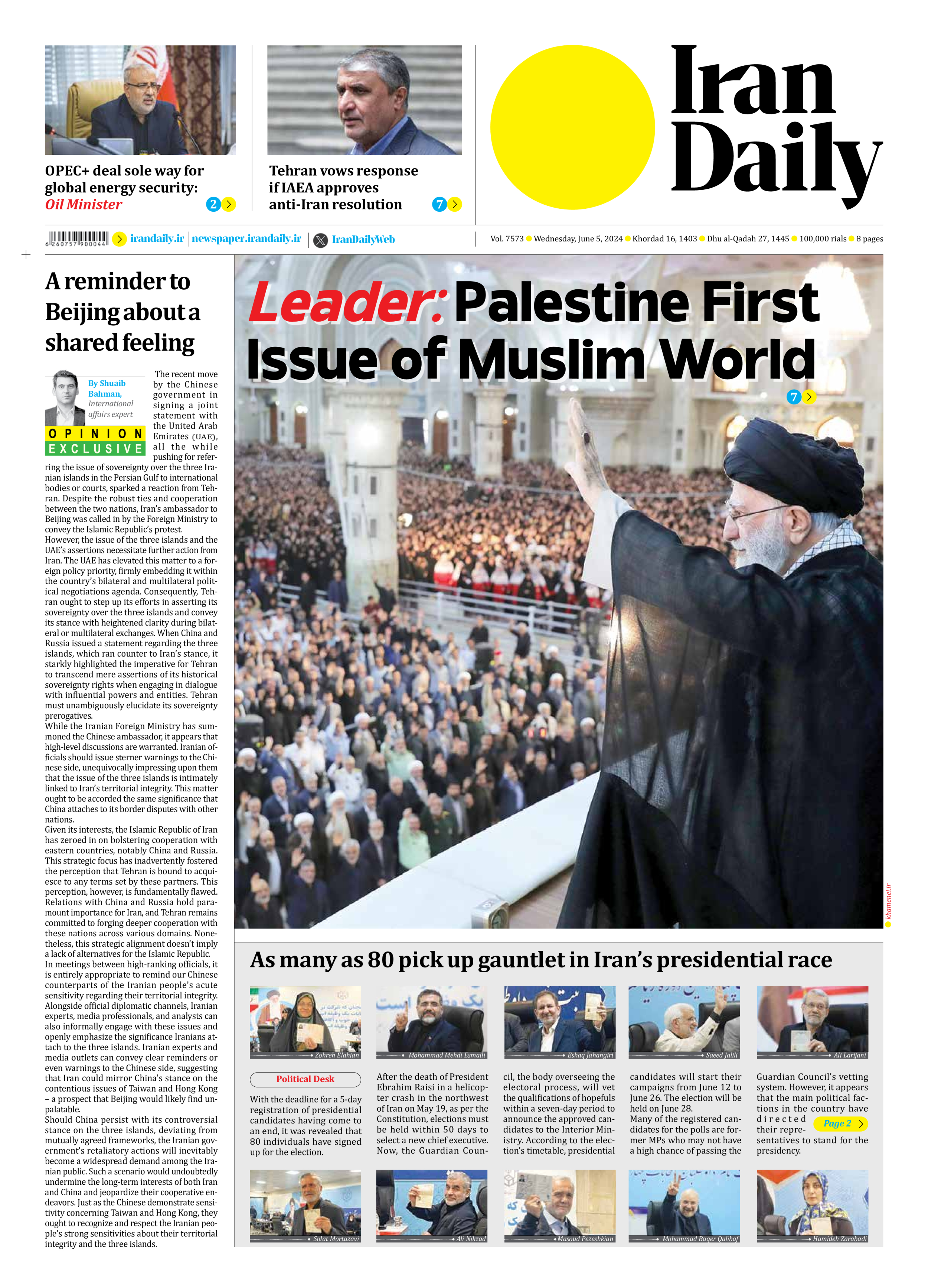
A reminder to Beijing about a shared feeling
By Shuaib Bahman,
International affairs expert
The recent move by the Chinese government in signing a joint statement with the United Arab Emirates (UAE), all the while pushing for referring the issue of sovereignty over the three Iranian islands in the Persian Gulf to international bodies or courts, sparked a reaction from Tehran. Despite the robust ties and cooperation between the two nations, Iran’s ambassador to Beijing was called in by the Foreign Ministry to convey the Islamic Republic’s protest.
However, the issue of the three islands and the UAE’s assertions necessitate further action from Iran. The UAE has elevated this matter to a foreign policy priority, firmly embedding it within the country’s bilateral and multilateral political negotiations agenda. Consequently, Tehran ought to step up its efforts in asserting its sovereignty over the three islands and convey its stance with heightened clarity during bilateral or multilateral exchanges. When China and Russia issued a statement regarding the three islands, which ran counter to Iran’s stance, it starkly highlighted the imperative for Tehran to transcend mere assertions of its historical sovereignty rights when engaging in dialogue with influential powers and entities. Tehran must unambiguously elucidate its sovereignty prerogatives.
While the Iranian Foreign Ministry has summoned the Chinese ambassador, it appears that high-level discussions are warranted. Iranian officials should issue sterner warnings to the Chinese side, unequivocally impressing upon them that the issue of the three islands is intimately linked to Iran’s territorial integrity. This matter ought to be accorded the same significance that China attaches to its border disputes with other nations.
Given its interests, the Islamic Republic of Iran has zeroed in on bolstering cooperation with eastern countries, notably China and Russia. This strategic focus has inadvertently fostered the perception that Tehran is bound to acquiesce to any terms set by these partners. This perception, however, is fundamentally flawed. Relations with China and Russia hold paramount importance for Iran, and Tehran remains committed to forging deeper cooperation with these nations across various domains. Nonetheless, this strategic alignment doesn’t imply a lack of alternatives for the Islamic Republic.
In meetings between high-ranking officials, it is entirely appropriate to remind our Chinese counterparts of the Iranian people’s acute sensitivity regarding their territorial integrity. Alongside official diplomatic channels, Iranian experts, media professionals, and analysts can also informally engage with these issues and openly emphasize the significance Iranians attach to the three islands. Iranian experts and media outlets can convey clear reminders or even warnings to the Chinese side, suggesting that Iran could mirror China’s stance on the contentious issues of Taiwan and Hong Kong – a prospect that Beijing would likely find unpalatable.
Should China persist with its controversial stance on the three islands, deviating from mutually agreed frameworks, the Iranian government’s retaliatory actions will inevitably become a widespread demand among the Iranian public. Such a scenario would undoubtedly undermine the long-term interests of both Iran and China and jeopardize their cooperative endeavors. Just as the Chinese demonstrate sensitivity concerning Taiwan and Hong Kong, they ought to recognize and respect the Iranian people’s strong sensitivities about their territorial integrity and the three islands.







